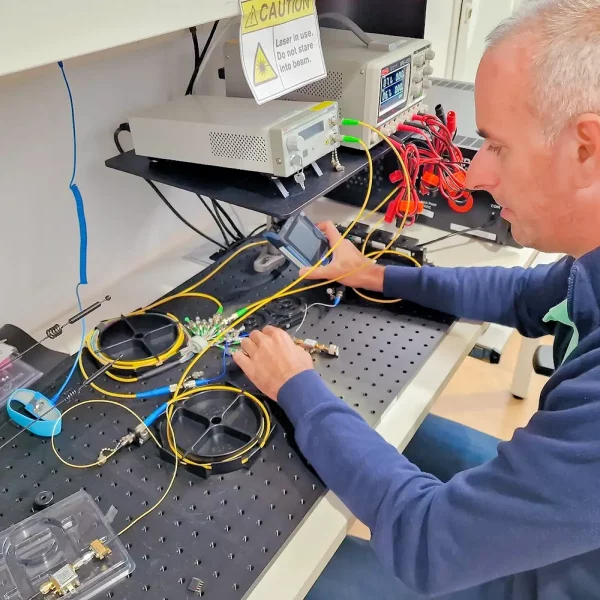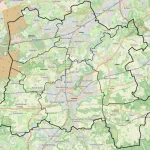Vodafone UK Tests Photonic Processor to Boost Mobile Network Signals

Mobile operator Vodafone is working with the Photonics and Radiofrequency Research Lab at the University of Málaga (Spain) to develop a new computer chip design, which can help to direct a wireless mobile signal straight to a user’s smartphone using microwave photonics (i.e. optical beamforming to process, steer, and precisely focus mobile traffic).
At present, most mobile networks work by sending their signals to devices (Smartphones etc.) over wireless radio waves via a radio unit, such as a base station or small cell. The radio unit contains an electronic computer chip to help govern all this. But the researchers are now developing prototype silicon chip designs, based on microwave photonics technology, which uses light instead of electricity to control and direct a mobile signal.
Two prototypes are currently being developed by the team. The initial prototype involves a passive chip as part of the preliminary Proof-of-Concept (PoC) work. Subsequently, an enhanced active chip will be developed to replace the current beamforming component within a radio unit.
Advertisement
Vodafone claims that a future fully functional active and commercial ready optical beamforming chip could be capable of operating with up to 32 small radio antennas integrated into a single mast, with each antenna being individually controlled. “This configuration enables flexible and precise steering of the light beam to multiple users, improving performance and lowering energy consumption“, while still being very compact.
Vodafone Statement
This new process, known as advanced optical beamforming, takes advantage of light properties to process, steer, and precisely focus mobile traffic, such as video streaming sessions, to the user with pinpoint accuracy.
While some mobile masts are already equipped with beamforming technology to direct a signal towards a specific area instead of broadcasting it more broadly, the incorporation of photonics provides a significant advantage. It will provide a greater degree of accuracy, reducing signal loss and limiting interference from other frequencies.
Other benefits include improved energy efficiency and greater capacity to support many users without scrimping on the quality of service. A stronger, stable signal also means a device uses less power to stay connected, preserving battery life.
This collaboration is part of an associated project awarded to Vodafone under the European Commission’s Important Projects of Common European Interest (IPCEI) Programme, supported by the Spanish Ministry of Industry and Tourism. Microwave photonic technology is emerging at an ideal time to benefit next-generation 5G-Advanced and future software-driven 6G networks. It is also better equipped for handling higher radio frequencies compared with current electronic systems.
Assuming all goes well, then Vodafone plans to publish a blueprint for photonic radio unit chips for mobile base stations within the next 2 years. The main objective of all this is to offer customers “continuous streaming services without buffering, even in crowded areas” (e.g. shopping centres). But it could also help in various other low latency, high bandwidth industrial applications, such as direct-to-device satellite communication systems and advanced radars etc.
Mark is a professional technology writer, IT consultant and computer engineer from Dorset (England), he also founded ISPreview in 1999 and enjoys analysing the latest telecoms and broadband developments. Find me on X (Twitter), Mastodon, Facebook, BlueSky, Threads.net and Linkedin.
« Project Reach Launched to Fix Mobile Signal Notspots on UK Rail Network






















































Cheaper than fix the actual problem with not enough number of masts or masts covered by trees. Fast forward to 2027 and “we have it”, “it doesn’t work”
Business as usual Research and development. No either-or involved.